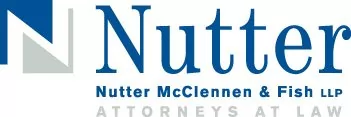In what can best be described as a pre-emptive strike, the Department of Justice ("DOJ") recently issued a new set of guidelines covering the investigation and prosecution of corporate crimes. This was done at least in part to blunt criticism that the DOJ had overreached its investigative powers and to stave off Congressional action that would have resulted in the "reigning in" of federal prosecutorial powers.
Ostensibly, the changes outlined by Deputy Attorney General Mark Filip address the most important objections raised by business and civil rights advocates. These advocates, along with many members of the bar, have protested the DOJ's practice of demanding waiver of the attorney-client privilege as a condition for awarding companies credit for cooperation when considering whether to charge companies with a crime. Yet the reality is that the "house always wins" when it comes to the government's criminal investigations of alleged corporate wrongdoing, While the new guidelines afford in-house and defense counsel some additional latitude, they do not restore the full measure of protection accorded attorney-client privilege.
Criticism of the expansion of prosecutorial power dates back to 2003 when, in the wake of Enron, WorldCom and other corporate fraud cases, the DOJ adopted the Thompson Memorandum. Under these guidelines, determination of the level of a company's cooperation with the DOJ in an investigation was predicated on several factors, including the company's willingness to waive attorney-client privilege, its refusal to indemnify employees for legal expenses associated with an investigation, and whether it had disciplined or terminated employees involved in the wrongful action.
Following Thompson, prosecutors' requests for waiver of attorney-client privilege, at least in certain jurisdictions, became almost automatic, creating a so-called "culture of waiver." In the midst of this, several high profile cases, including one involving KPMG, took place in the context of prosecutors pressuring firms to stop paying employee legal fees as a condition of entering into nonprosecution agreements.
In effect, the Thompson Memorandum touched off a firestorm of protest that the DOJ sought to abate through adoption of the McNulty Memorandum in 2006. McNulty restored some degree of balance by restricting prosecutors' authority to request waivers of attorney-client privilege and placing limits on prosecutors' right to consider waivers and other factors (such as not paying employee legal fees) in determining cooperation.
While the McNulty Memorandum marked a retreat from the "culture of waiver," as a result of its conditional approach, companies continued to feel significant pressure to voluntarily waive privilege in order to receive cooperation credit. In addition, the McNulty Memorandum continued to allow prosecutors to consider a company's participation in joint defense agreements with employees as well as the company's treatment (in terms of discipline or termination) of culpable employees in assessing cooperation.
Dissatisfied with the level of changes implied by the McNulty Memorandum, Senator Arlen Specter introduced the Attorney-Client Privilege Protection Act of 2008. In a preemptive move, the DOJ issued new guidelines, which were outlined by Deputy AG Filip. Filip makes some significant concessions to the critics of McNulty.
Federal prosecutors cannot demand companies waive privilege over "attorney-client communications or non-factual attorney work product" nor condition cooperation credit on such a waiver. Further, in determining cooperation, federal prosecutors may not consider whether a company has:
- Advanced attorneys' fees to its employees;
- Entered into a joint defense agreement;
- Terminated or sanctioned employees involved in wrongdoing.
The Filip changes should eliminate some of the more egregious abuses and overreaching by federal prosecutors that has taken place in the past. The confidential opinions, advice and work product of legal counsel (so-called Category II information under McNulty) are now unconditionally protected, although even prior to Filip the DOJ had largely ceased making waiver requests for Category II information. Coupled with the recent opinion of the U.S. Court of Appeals for the second Circuit in U.S. v. Stein, prosecutors are barred from pressuring companies into not paying for employees' legal fees.
That being said, as a practical matter, it is unclear just how significant the Filip changes are. The Filip revisions take a bottom-line approach where the key determinant of cooperation is the extent to which a company "discloses relevant facts and evidence." Filip is neutral about how companies obtain the relevant facts and evidence, as long as they turn them over.
Frequently the underlying facts of potential corporate wrongdoing or fraud are gathered as part of an internal investigation conducted by legal counsel, and thus subject to privilege claims. In those cases, the company faces the same dilemma about whether to waive attorney-client communications in order to receive cooperation credit. Thus, when it comes to what McNulty termed "Category I information ("purely factual information relating to the underlying misconduct") Filip has not necessarily advanced the protections afforded attorney-client communications.
What Filip provides is that since waiver of attorney-client communications per se is not a condition of cooperation, companies may be able to forestall the decision of whether to waive these types of communications until later in the negotiation with federal prosecutors—after they have had more of an opportunity to complete their internal investigation, and make a more informed decision about the consequences of waiver.
Remember that these guidelines apply only to the DOJ and not to other agencies. Those agencies may exercise considerable leverage (for example, the Medicare exclusion vis-à-vis pharmaceutical companies) in getting companies to forfeit rights in exchange for cooperation credit and nonprosecution agreements. These guidelines can also be revised at any point, and given that a new administration is in place, such a possibility is not far-fetched.
Ultimately, Filip represents a minor victory in the effort to protect corporate rights in a criminal investigation, but federal prosecutors and the government still have a significant advantage in pursuing and prosecuting corporations for alleged misconduct.
This update is for information purposes only and should not be construed as legal advice on any specific facts or circumstances. Under the rules of the Supreme Judicial Court of Massachusetts, this material may be considered as advertising.

